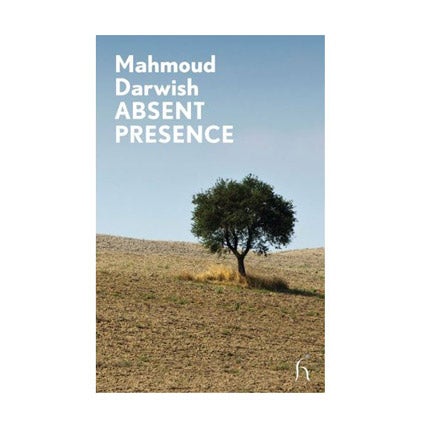Absent Presence, By Mahmoud Darwish
Lessons in life from the great divide

Your support helps us to tell the story
From reproductive rights to climate change to Big Tech, The Independent is on the ground when the story is developing. Whether it's investigating the financials of Elon Musk's pro-Trump PAC or producing our latest documentary, 'The A Word', which shines a light on the American women fighting for reproductive rights, we know how important it is to parse out the facts from the messaging.
At such a critical moment in US history, we need reporters on the ground. Your donation allows us to keep sending journalists to speak to both sides of the story.
The Independent is trusted by Americans across the entire political spectrum. And unlike many other quality news outlets, we choose not to lock Americans out of our reporting and analysis with paywalls. We believe quality journalism should be available to everyone, paid for by those who can afford it.
Your support makes all the difference.Mahmoud Darwish was a giant of world literature.
This elegant edition of the last completed work before the Palestinian poet's death in 2008 makes clear why. Absent Presence is a huge little book which defies conventional categorisation. It offers costly wisdoms from a life journey, rendered in the opaque lyricism of his poetry. Memoir alternates with essays on Arabic letters and his far from "ordinary day", sleep and not "suffering", prison and "foreign women", beginnings and "this last journey".
Darwish described the book as "a baffling text", and it is certainly demanding. Absent Presence is his third volume of memoir-driven prose. The earlier volumes, Journal of an Ordinary Grief (1973) and Memory for Forgetfulness (1985), shared a translator. Absent Presence, translated in this UK edition by Mohammad Shaheen, most closely resembles the poetic style of Mural (2000).
Absent Presence is formed by 21 sections which run through the poet's life: from his boyish witness of "annihilating disaster" – the "Nakba" of 1948 – to his last years in Ramallah. The title refers to those Palestinians who, after massacres and expulsion, made it back home to a "nameless" internal exile. Darwish was a "present-absentee" from the age of eight or nine when his family returned to within sight of their stolen lands, outside their erased village. "Absent presence" also characterises the place of women in Darwish's life, as well as the winged quality of his poetry.
Darwish died still under Occupation, but makes no special pleading: "rather, seize this reality, this name of yours, and learn how to write your proof". His is the voice of dispossessed Palestine but its longings, including sheer lust, are universal. This book overflows with resonant lines and questions like, "How do words expand to embrace the world?" Not all of Darwish's attempts work and here they are sometimes hindered by a too cumbersome translation of the Arabic. However, now that their author has gone, his attempts crystallise as unique achievements.
Absent Presence is best approached by the leanest of Darwish's poetry, in State of Siege (2002), or perhaps by the newly-translated Journal of an Ordinary Grief. Here Darwish joins letter with letter to house the land of his birth in the rhythms of a sea that opens onto humanity's furthest horizon. His writing "like love...dissolves if you grasp it" – but this is a book for life.
Join our commenting forum
Join thought-provoking conversations, follow other Independent readers and see their replies
Comments